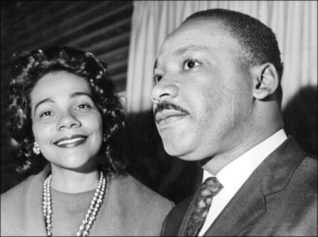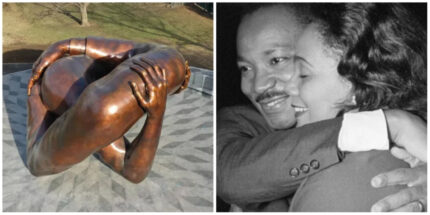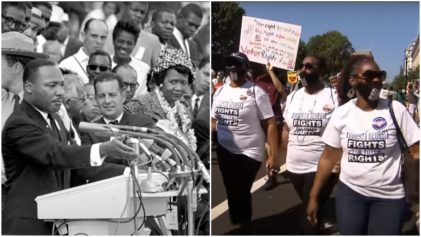The arrest of Rosa Parks on Dec. 1, 1955, was the spark that launched the Montgomery Bus Boycott, a 13-month-long mass protest that saw the Black community in Montgomery, Alabama, work together in an astounding display of unity to get around the need to ride Montgomery’s public buses. The boycott brought the city’s economy to its knees and ended with the U.S. Supreme Court ruling that segregation on public buses is unconstitutional.
Two Black Girls Were Arrested Before Parks, But the Community Wasn’t Ready Yet
First was 15-year-old named Claudette Colvin, arrested on March 2, 1955, for refusing to give up her ‘white’ seat. But her case wasn’t pursued by the NAACP because she had assault charges against her. They wanted a case that was pure—although the assault charges were, in fact, ridiculous. This is how Colvin’s classmate, Annie Larkins Price, described the encounter: “The bus was getting crowded and I remember the bus driver looking through the rear view mirror asking her (Colvin) to get up out of her seat, which she didn’t. She didn’t say anything. She just continued looking out the window. She decided on that day that she wasn’t going to move. There was no assault.” The state of Alabama dropped the segregation issue against Colvin and simply pursued a case of assault and battery.
Parks Was Inspired by Claudette Colvin
Rosa Parks had been a life-long worker for the NAACP and she had taken a special interest in the Claudette Colvin case, according to the History Learning site. At the time of her arrest, Parks had just finished a course on race relations in Monteagle, Tennessee. She had become a seamstress simply because that was all she could find to do in the segregated society of Montgomery, but she had been educated at the all-black Alabama State College. In his memoir, King wrote about Parks that ‘‘Mrs. Parks was ideal for the role assigned to her by history,’’ and because ‘‘her character was impeccable and her dedication deep-rooted’’ she was ‘‘one of the most respected people in the Negro community.’’


